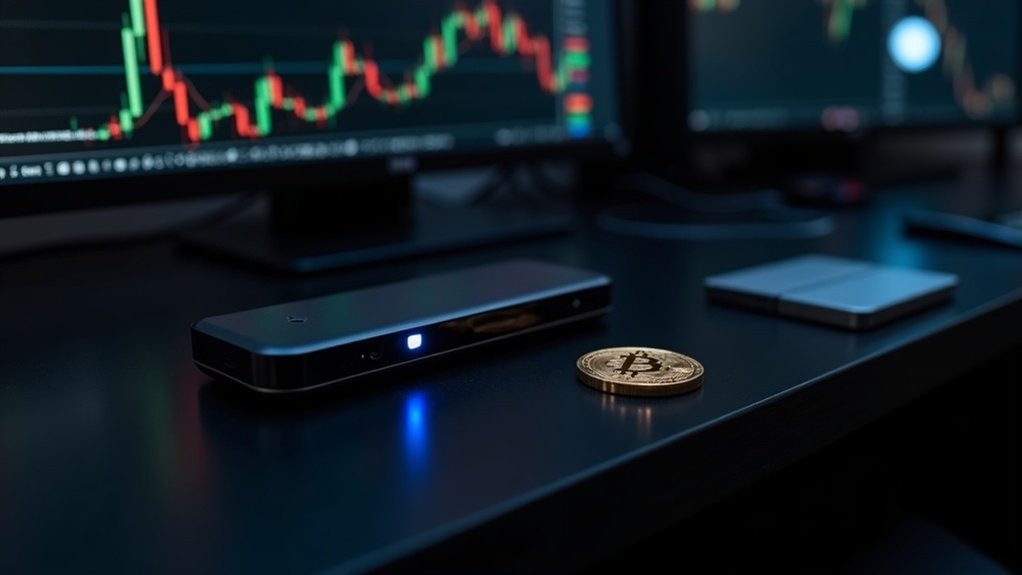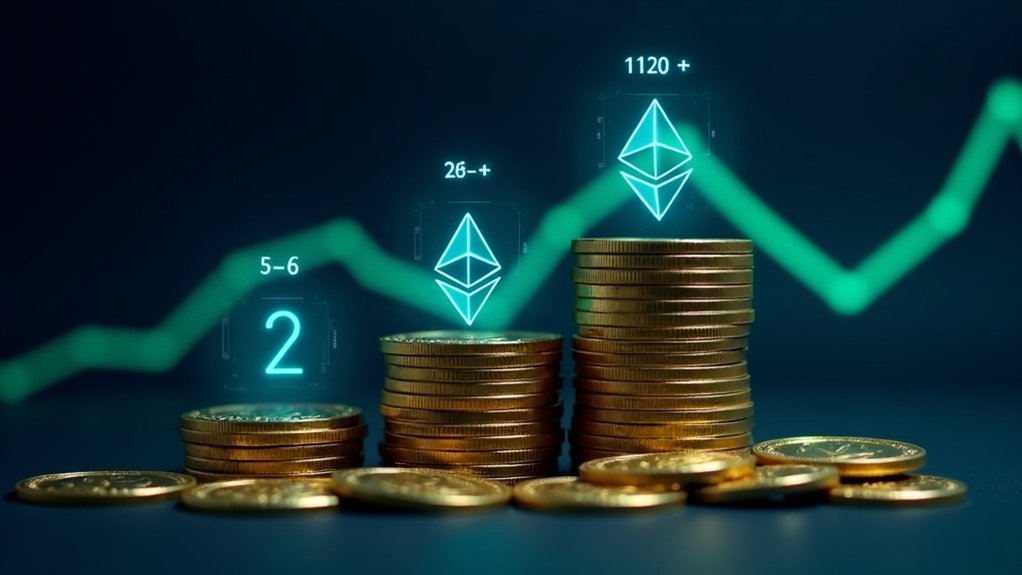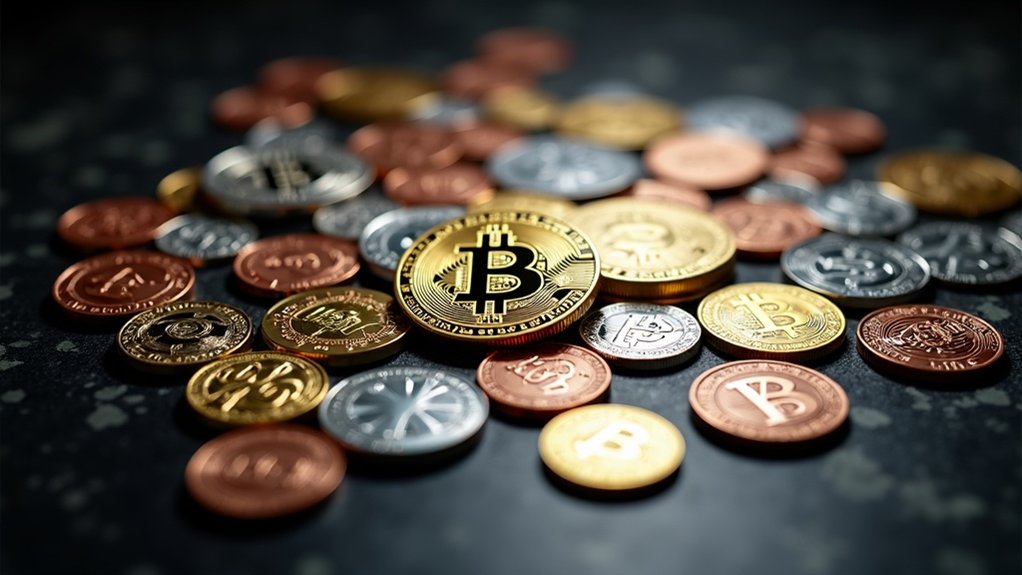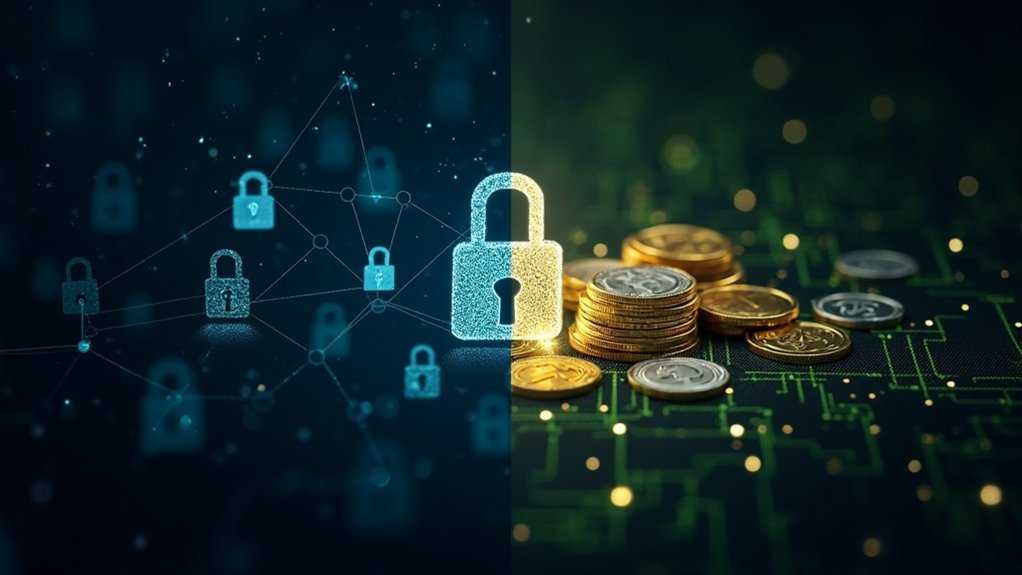Cryptocurrency isn’t just digital money—it’s a financial phenomenon. Beginners typically start by choosing established exchanges like Coinbase or Binance, setting up accounts with ID verification, and linking bank accounts. Small investments in Bitcoin or Ethereum make sense for newcomers. The market swings wildly—20% up one day, 30% down the next. Hot wallets work for everyday use, but serious investors grab cold storage hardware like Ledger. The crypto universe constantly evolves, leaving the unprepared in the digital dust.
Why has cryptocurrency become the financial buzzword of the decade?
Everyone from college students to Wall Street veterans seems captivated by these digital assets.
Some see them as the future of finance.
Others just want to make a quick buck.
Either way, cryptocurrencies aren’t going anywhere.
Cryptocurrency is, at its core, digital money.
No physical coins.
No paper bills.
Just code.
It uses cryptography for security and operates on technology called blockchain—essentially a fancy digital ledger.
Bitcoin started it all in 2009, but now thousands of cryptocurrencies exist.
Some matter.
Most don’t.
Getting into crypto means choosing an exchange first—a platform where you buy, sell, and store digital assets.
Popular options include Coinbase, Binance, and Kraken.
They’re basically the cryptocurrency equivalent of stock brokerages.
Set up an account, verify your identity (yes, they check), and link your bank account.
Not exactly anonymous, despite what crypto enthusiasts might claim.
You can purchase crypto using various payment methods including bank transfers, debit cards, or wire transfers.
You’ll need a wallet too.
This isn’t something you put in your pocket.
Digital wallets store the keys that give access to your crypto.
There are “hot wallets” connected to the internet and “cold wallets” that stay offline.
Cold wallets offer better security.
Hot wallets offer convenience.
Choose your poison.
For long-term safety, consider transferring your crypto to hardware wallets like Ledger or Trezor.
Ready to buy?
Start small.
Seriously.
The crypto market fluctuates wildly—up 20% one day, down 30% the next.
Beginners should consider established cryptocurrencies like Bitcoin or Ethereum for their initial investments.
It’s not for the faint of heart or anyone who can’t afford to lose their investment.
Bitcoin and Ethereum remain the biggest names in the game.
They’re less likely to disappear overnight than “MoonShotDogeCoin” or whatever new token launched yesterday.
Remember the crypto world never sleeps.
Markets run 24/7, unlike traditional stock exchanges.
Prices change by the second.
Fortunes made and lost while you’re sleeping.
That’s just how it works.
The crypto landscape evolves constantly.
Today’s hot coin might be tomorrow’s cautionary tale.
Welcome to the wild west of finance.
Frequently Asked Questions
How Can I Identify and Avoid Cryptocurrency Scams?
Cryptocurrency scams are everywhere.
Look for red flags: unsolicited offers, promises of massive returns, pressure tactics.
Scammers love impersonating officials or creating fake websites.
They’ll build trust, then strike.
Legitimate platforms don’t ask for unusual payments.
Research everything. Twice.
Protect personal data like it’s gold.
Phishing is rampant.
Those “double your Bitcoin” giveaways? Pure fiction.
Remember: extraordinary claims need extraordinary proof.
The crypto world isn’t giving away free money.
What Tax Implications Should I Consider When Investing in Cryptocurrency?
Crypto investing means tax headaches. Plain and simple. The IRS views cryptocurrency as property, not currency.
Sell for profit? Capital gains tax. Mine some Bitcoin? Ordinary income tax. Hold for over a year? Lower tax rates, thankfully. Every trade between cryptos? Taxable event. Even buying coffee with Bitcoin triggers taxes.
And starting 2025, expect more reporting requirements from exchanges. State taxes pile on too. Yeah, the government wants its cut. Always does.
Can I Mine Cryptocurrency Without Specialized Equipment?
Yes, but don’t expect to get rich.
CPU mining is possible but largely unprofitable for most cryptocurrencies. Some options exist though.
Bytecoin and Monero can be mined with regular computers.
Cloud mining lets you rent computing power without hardware.
USB miners offer an entry point for around $150, but their hash rates are laughably low.
Mining pools help maximize minimal resources.
Reality check: home setups can’t compete with industrial mining operations. Electricity costs often exceed profits.
How Do Hardware Wallets Differ From Software Wallets?
Hardware wallets store crypto keys offline on physical devices, making them tamper-proof and immune to online threats. Software wallets? They’re internet-connected—convenient but vulnerable.
The trade-offs are clear. Hardware costs $50-$200 while software is usually free. Hardware requires more setup but offers bulletproof security for large holdings. Software wallets? Slick interfaces, faster transactions, and broader asset support. Perfect for daily use.
Security versus convenience. The eternal crypto dilemma.
What Happens to My Cryptocurrency if the Exchange Goes Bankrupt?
When exchanges go bankrupt, customers often lose big. Period. The automatic stay prevents withdrawals, and despite what those fancy “custodial agreements” claim, cryptocurrency holders typically become unsecured creditors—the bottom of the payment food chain.
No FDIC protection here. Your digital assets? Legally part of the bankruptcy estate now.
Some folks might get pennies on the dollar. Others? Nothing. Recent bankruptcies like FTX showed this harsh reality.
Cold storage wallets avoid this mess entirely.









